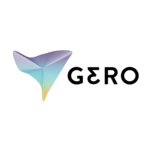Longevity Biotech Gero Entered a Research Collaboration With Pfizer to Discover Potential Targets for Fibrotic Diseases

SAN FRANCISCO–(BUSINESS WIRE)–Gero today announced that it has entered into a research collaboration with Pfizer to apply Gero’s machine learning technology platform to discover potential therapeutic targets for fibrotic diseases using large-scale human-based data.
As part of this research collaboration, the companies will leverage Pfizer’s expertise and Gero’s technology platform with the aim to identify genes and pathways linked to fibrotic diseases. Pfizer may advance the potential therapeutic targets and would be responsible for further preclinical and clinical development.
“Human data-driven drug discovery avoids the “preclinical trap” and has the potential to identify clinically relevant targets against human (not rodent) diseases. However, genetics-based target identification against age-related diseases is hindered by the irreversible component of human aging,” said Peter Fedichev, CEO of Gero. “Our technology platform allows us to separate irreversible effects of aging from reversible disease phenotypes to potentially identify the most actionable therapeutic targets.”
Gero will receive an upfront payment and is eligible to receive discovery milestone payments if the project progresses.
“We are excited to work with Pfizer, one of the world’s leading biopharmaceutical companies, to potentially identify targets against fibrotic diseases, which have a large unmet need,” said Alex Kadet, CBO of Gero. “We believe that combining our platform technology with Pfizer’s extensive disease expertise has the potential to identify high-value targets in this disease area.”
About Gero
Gero is a preclinical-stage physics-enabled biotechnology company creating therapeutics against chronic diseases with a mission to slow down human aging itself.
Gero applies machine learning algorithms originating from the physics of complex systems to build clinically relevant disease progression models (phenotypes) in real-world human data and identify clusters of diseases with shared biology. Then the AI-enhanced genetic study on the phenotypes in conjunction with Whole-Exome sequencing data reveals novel therapeutic targets potentially applicable to several indications simultaneously.
Gero’s research has been published in Nature Communications (1, 2, 3) and Science journals and is covered by Scientific American.
Contacts
For all media inquiries
Daria Dinze
dinze@icantell.agency
Antonia Monzani
antonia@icantell.agency
